A Field In England (2013)
Directed by: Ben Wheatley
Written by: Amy Jump
Starring: Julian Barratt, Michael Smiley, Peter Ferdinando, Reece Shearsmith
OUT NOW ON DVD AND BLU-RAY
RUNNING TIME: 86 min
REVIEWED BY: Dr Lenera, Official HCF Critic
In the midst of a battle during the English Civil War in the 17th century, the alchemist Whitehead flees from his strict master Trower and meets Cutler and two deserters, Jacob and Friend, who save him. Together they leave the battleground and head off in search of an ale house nearby. Along the way they come across the Irishman O’Neill, the man whom Whitehead has been sent to apprehend for stealing his master’s documents. O’Neill quickly asserts his authority over the group and tells them of a treasure hidden somewhere in the field. The group sets off, the only things to eat being hallucinogenic mushrooms….
Director Ben Wheatley says that A Field In England began life when he would look out of trains onto fields and often wonder what it would be like to shoot a whole film in one of those fields. This is the result, and it really seems to have polarised people. This is nothing new with Wheatley’s work, especially Kill List. Viewers seem to either love or hate his stuff, and I would imagine that Wheatley is just fine with that. He strikes me as the kind of filmmaker who might regard someone loathing his work as not too bad a thing, because at least it’s caused a strong reaction. A Field In England is something else though. It has proved to be his most divisive film yet, and to be honest as I write this, I’m not sure whether I liked it or not. I certainly didn’t hate it, and I am full of respect for all concerned to make such a ‘different’ film in today’s climate, but I didn’t really enjoy it either. I totally and utterly recommend it to anyone whose taste veers to the offbeat and strange though, though even then your enjoyment of the film may be based on how you take it, on whether you like to take a film at face value, or like to search for meanings in what you are watching.
You could, therefore, say that A Field In England is just about some men from different backgrounds who meet in the middle of a war, search for a treasure and weird things happen due to the consumption of magic mushrooms. Fair enough, but consider that the film seems to echo a heady array of sources that include Samuel Becket’s existentialist play Waiting For Godot and contain much imagery from alchemy, such as the Sol Niger, a black sun that represents great transformative power. Like Wheatley’s other work, but even more so, it seems to be informed by Wheatley’s fascination with the ancestry of us Brits, the reminding that our past was a bloody, nasty one, and that we have echoes of that past inside us. And even the magic mushrooms, which may seem to some to be just put in as an excuse for some madness, have a historical basis. They were used a great deal during the 17th century , especially by supposed magicians who would grind magic mushrooms into dust and blow it in people’s faces, allowing them to think they are seeing magic tricks. Fields containing mushroom rings were called “fairy rings” and considered by some to be a portal into the “fairy world”. We tend to think of drugs, at least of the psychedelic kind, to be a comparatively new thing in this country, but that is most definitely not the case.
The whole film is set, yes, in a field which one of the characters said is in Monmouthshire [though it was actually shot in Surrey just outside Guildford]. The thing is, Monmouthshire is actually in Wales, not England, but it used to be disputed, and I have no doubt that writer Amy Jump [the wife of the director, in what has become a partnership of great creativity] knew of this and used it to add some confusion, though in the end it doesn’t really matter where the field is. The film opens with some frantic shakycam representing the point of view of something scrambling through bracken and yes, I said to myself “uh oh”, but it only lasts a few seconds. We realise we are in the middle of a English Civil War battle, and we actually hardly see anything but very clever use of particular shots and sound manages to convince us. The guy who appears to be our ‘hero’, Whitehead, first seen trying to flee for his life, has his life saved and sets off across the field with his rescuer and two companions for a supposed pub. Little happens for quite a while as the characters walk and talk. This film really takes its time, lingering on the four distant black figures crossing the countryside, or a dissolve going from one of them singing to the four of them walking again appearing to be stuck. We get to know snippets about all the characters amidst dialogue that has been criticised for being too humorous, but soldiers do often constantly crack jokes as a way of dealing with their job. As usual in a Wheatley picture the humour has an unpredictable and bitter edge. The height of this is later on when somebody is dying and decides not to tell his wife he loves her but says as many nasty things about her as he can.
The film doesn’t seem like it’s going anywhere, but the combination of Laurie Rose’s incredible photography, which is able to make a simple field seem beautiful, hell on earth, and several other things in-between, and James William’s really diverse score, ranging from what sounds like authentic sounds of the time to Brian Eno-esque ambient beauty, succeeds in creating a truly strange mood like few others, though I saw elements of Terence Malick, Andrei Tarkovksy and even Nicolas Rending Wefn [principally Valhalla Rising]. Wheatley himself admits that Onibaba and Culloden were strong influences. In any case, we then get to two absolutely amazing sequences which show both a brilliant command of cinema and a knack for the truly unsettling. Whitehead goes into O’ Neill’s tent, and for ages we hear him scream…and scream….scream, but never really know what is happening to him, until he emerges from the tent with a rope acting as a “dog” lead, staggering around in slow motion. Then, later on, a drug trip uses strobe lighting while images, all taken from elsewhere in the film, seem to morph into each other and even create patterns in a sequence which I replayed several times because I was so stunned.
Of course you know there’s going to be violence, and images like a face being shot off have an impact even with the black and white photography, with gives the proceedings a peculiar feeling of authenticity even though it probably shouldn’t. The ending will make you really scratch your head. Now what does it all mean? Is it partly about faith? Is it about passing from this world to the next, the field being purgatory, and second chances? Is it….well, I had several other possibilities as I watched, and maybe all or none of them are correct. If you’re not the thinking type, you may have trouble with this film, but I reckon you’ll still enjoy the performances, with Kill List’s Michael Smiley really giving an impression of great power as O’ Neill, and the idea of a bunch of people going to a field without a finished script and shooting a movie in eight days. In an unusual move, A Field In England was released simultaneously cinemas, in stores, on TV and VoD. I guess that it was the best way to get such a ‘different’ film out there.
I found A Field In England frustrating at times, yet in the process of writing this review and thinking about what I have just watched more, I have grown to like it far more than I did when I began it. In fact, I now want to go and watch it again, and if that isn’t proof of a good film then I don’t know what is. I’m aware that I’m contradicting what I said near the start of this review, but I’m not altering my words. I don’t think there’s anything wrong with changing one’s view of a movie, and though this may make my review seem a little unprofessional, I hope you appreciate my honesty. I still think that the film doesn’t entirely succeed in doing everything it set out to do, but it’s still a respectable throwback to the days of the ‘Midnight Movie’, the time when filmmakers were more willing, and had the freedom to experiment, to ask an audience to think, to go the extra mile – or failing that, to just go and get wasted and see what crazy movie came about as a result. There aren’t many doing that these days, so we should cherish them, while, even more than before, Wheatley has proved himself as one of the very best British independent filmmakers, with work that is diverse in genre and style yet consistent in intelligence and theme.
Rating: 










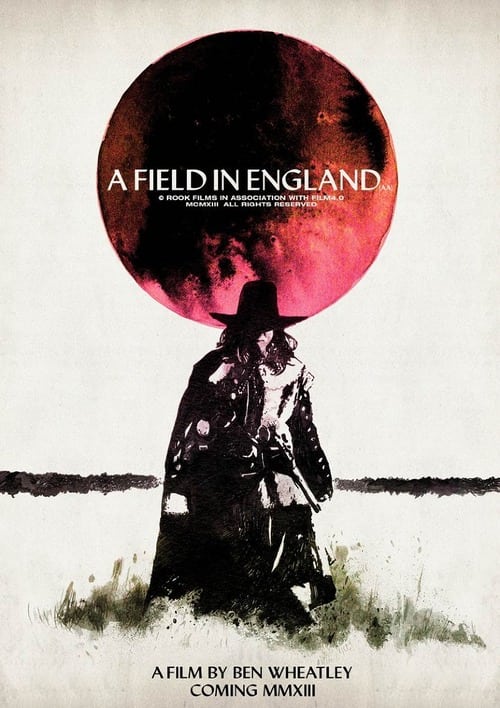
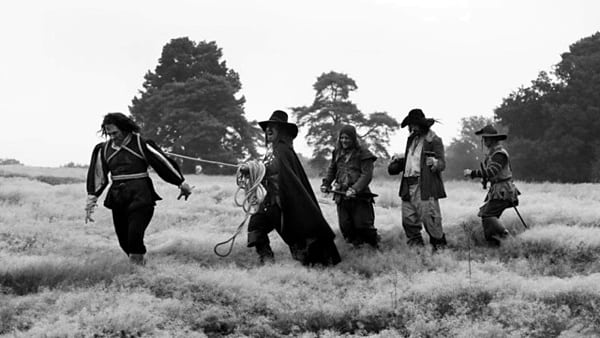
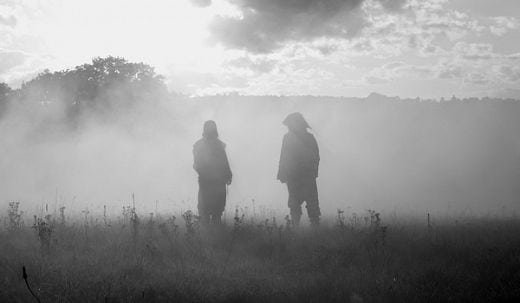

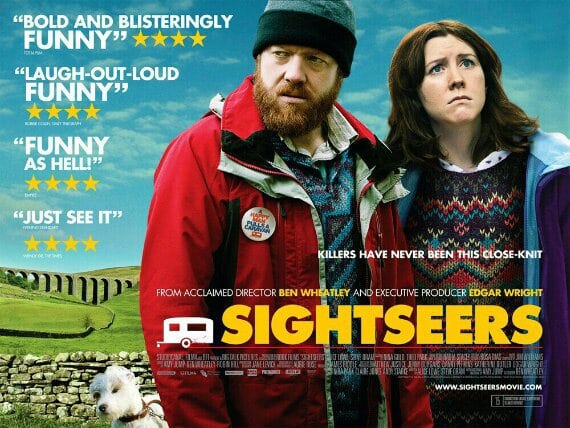
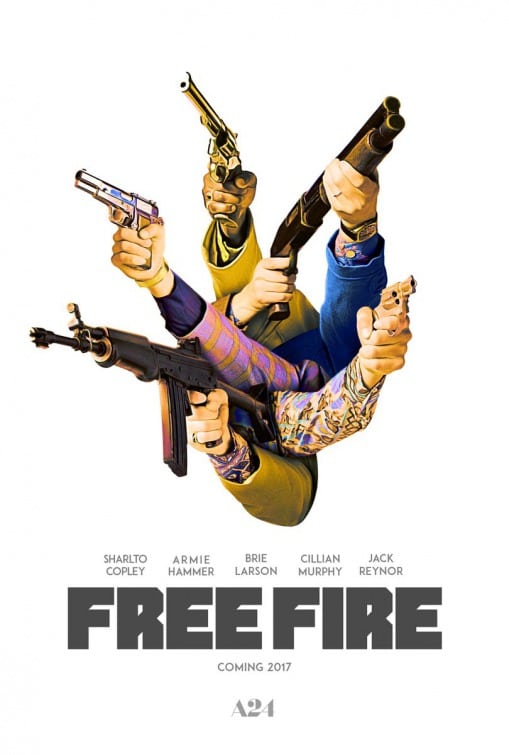
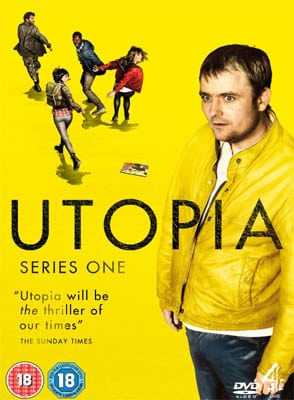
Be the first to comment